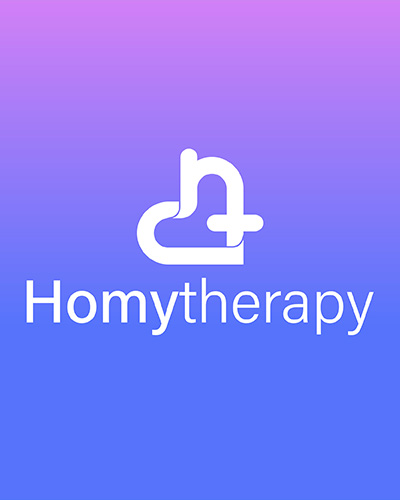In today's digital age, social media has become an integral part of our lives. While it offers connectivity and opportunities for self-expression, it can also impact mental health. In this comprehensive exploration, we'll delve into the intricate relationship between social media and mental well-being, as well as provide practical strategies for effectively navigating this ever-evolving digital landscape.
The Digital Age Dilemma: Social Media's Impact on Mental Health
The advent of social media platforms has revolutionized the way we connect, share, and communicate. It's undeniable that social media offers numerous benefits, including staying in touch with loved ones, promoting businesses, and raising awareness about social issues. However, this digital revolution is not without its challenges, particularly in the realm of mental health.
1. Comparison and Envy
One of the prominent mental health challenges associated with social media is the phenomenon of social comparison. When we scroll through our feeds, we're exposed to carefully curated content, often showcasing the highlight reel of people's lives. This continuous exposure to seemingly perfect moments can lead to unrealistic comparisons. We may begin to question our own lives, accomplishments, and even self-worth, ultimately leading to feelings of inadequacy.
2. Cyberbullying
Cyberbullying, or online harassment, is another grave concern related to social media. The relative anonymity provided by the internet has unfortunately created an environment where individuals can engage in hurtful, harmful, or even malicious behaviors. The impact on mental health can be severe, leading to stress, anxiety, and depression in victims.
3. FOMO (Fear of Missing Out)
The constant flow of information on social media can trigger the fear of missing out or FOMO. When we see others engaging in exciting activities, traveling to new places, or attending social events, we may experience a profound sense of missing out on life's adventures. This fear can lead to feelings of exclusion and dissatisfaction with our own lives.
4. Anxiety and Depression
Several studies have established a link between excessive social media use and increased symptoms of anxiety and depression. The constant connectivity, comparison, and exposure to negative news or opinions can contribute to heightened stress and mental health challenges.
5. Screen Time and Sleep Disruption
In our digital age, it's easy to find ourselves spending significant portions of the day staring at screens. Whether it's the smartphone, tablet, or computer, the prolonged exposure to screens can have detrimental effects on sleep patterns and overall well-being. The blue light emitted by screens interferes with the production of melatonin, a hormone crucial for regulating sleep. Disrupted sleep, in turn, can contribute to mood disturbances and feelings of fatigue.
Navigating the Digital Age: Strategies for Protecting Mental Health
While the digital age has its challenges, it also offers numerous opportunities to protect and enhance your mental health. Here are practical strategies to help you navigate the digital landscape mindfully:
1. Mindful Consumption
Practicing mindful social media use is about being conscious of your interactions and setting intentions. Consider the following tips:
-
Limit Screen Time: Establish specific time limits for daily screen time, both for social media and other digital activities. Apps and tools are available to help you track and manage your screen time effectively.
-
Follow Positive Content: Curate your social media feed to include content that inspires, educates, and uplifts you. Unfollow or mute accounts that consistently contribute to negative emotions or stress.
-
Be Mindful of Emotional Reactions: Pay attention to how certain content or interactions make you feel. If you notice a particular account or topic consistently triggers negative emotions, consider reducing your exposure.
2. Digital Detox
Taking regular breaks from social media can help reset your relationship with technology and promote better mental health. A digital detox can involve temporary or periodic disengagement from social media platforms. Consider the following:
-
Scheduled Breaks: Designate specific periods during the day or week when you'll be off social media. Use this time to engage in offline activities that bring you joy and relaxation.
-
Unplugging on Weekends: Many individuals find it beneficial to unplug during the weekends to reconnect with nature, hobbies, or loved ones.
3. Building a Supportive Online Community
While social media can sometimes be a source of stress, it also provides opportunities to connect with like-minded individuals and supportive communities. Here's how you can build a positive online experience:
-
Join Supportive Groups: Seek out groups and communities that align with your interests and values. Engaging in these communities can provide a sense of connection, understanding, and shared experiences.
-
Limit Personal Information Sharing: Be mindful of the information you share on social media. Protect your privacy by avoiding the disclosure of sensitive personal information.
-
Positive Engagement: When participating in online discussions or interactions, maintain a positive and respectful tone. Constructive conversations can be enriching and foster a sense of community.
4. Unplugging Before Bed
A crucial aspect of promoting good mental health is improving your sleep patterns. To enhance sleep quality:
-
Set a Digital Curfew: Avoid screens at least an hour before bedtime. The blue light emitted by screens can interfere with the production of melatonin, a hormone essential for sleep.
-
Read or Practice Relaxation: Use the hour before bed for relaxing activities, such as reading, practicing mindfulness, or engaging in deep breathing exercises.
5. Setting Boundaries
Establishing specific time limits and boundaries for social media use is essential for managing your screen time effectively. Some effective boundaries include:
-
No Social Media at Work: Avoid using social media during working hours to maintain focus and productivity.
-
Mealtime Rules: Set boundaries for mealtime and avoid using your phone or tablet while eating. Mealtime is an opportunity for relaxation and social connection.
6. Seeking Professional Help
If you find that your social media use is causing significant mental health concerns, it's crucial to seek help. Mental health professionals can offer guidance and support. Some signs that it might be time to seek help include:
-
Consistent Symptoms: If you're experiencing persistent symptoms of anxiety, depression, or other mental health issues related to your social media use.
-
Impaired Daily Functioning: When your use of social media interferes with your daily life, including work, relationships, and self-care.
-
Thoughts of Self-Harm: If you ever experience thoughts of self-harm or suicide, it's vital to seek professional help immediately.
Navigating the digital age while safeguarding your mental health is a journey that requires ongoing self-awareness and self-care. It's about finding the right balance that allows you to enjoy the benefits of social media while protecting yourself from its potential negative effects.






